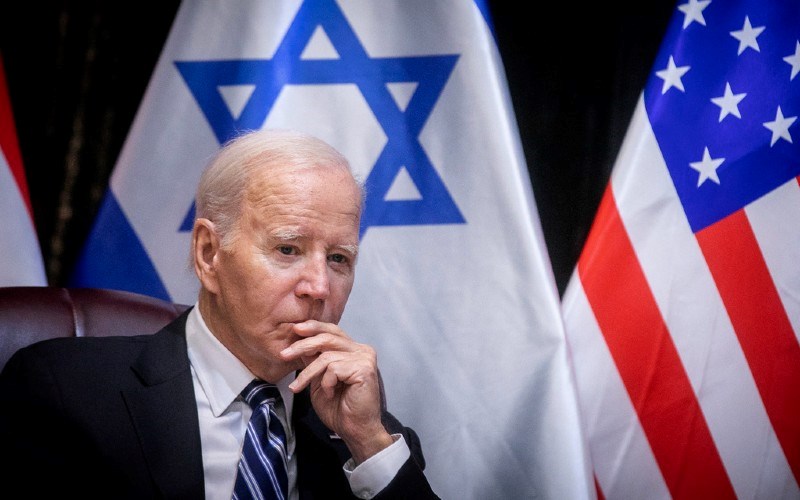An Israel united in its resolve to defeat Hamas has been a dominant theme in reports since the terrorist group killed more than 1,400 Israeli citizens – and some Americans – in coordinated surprise attacks on Oct. 7. Israel welcomes the aid that will come its way from the United States. But after a visit by President Joe Biden this week, it wants to make sure that aid is coming with no strings attached.
Biden visited Israel this week and pledged America's continued support – but he also announced $100 million in aid to Palestinian refugees, money that could fall into the hands of their governing authority in Gaza: Hamas.
Chris Mitchell, the Middle East Bureau Chief for The Christian Broadcasting Network, said on Washington Watch Wednesday that he believes Israelis have had mixed reactions to Biden's visit.

"I'm excited about the president coming but a little wary as well,” Mitchell told show host Tony Perkins as the president's visit kicked off. "What are the strings [for America's support]? And what's going on behind the scenes?”
Mitchell said reports have surfaced that suggest Secretary of State Antony Blinken has been putting conditions on shipments of munitions to Israel. "One of those is bunker-busting bombs for the underground tunnels, maybe 300 miles of tunnels, believe it or not, inside Gaza Strip,” the journalist explained.
Last Friday, Israel encouraged Gazans to leave within 24 hours. It has continued to bomb strategic targets but has not yet used ground forces to invade the Gaza Strip. But while the Israel Defense Forces plans its next move, the country also has to consider its other enemies, Mitchell stated.
"There are some who are arguing that maybe Israel should preemptively strike Hezbollah [to the north] because it represents a strategic threat far greater than Hamas on the southern border, maybe ten times the strength of Hamas,” he said.
Iran has threatened to get involved if Israel begins a ground war in Gaza.
"That's what the [Iranian] foreign minister did say two days ago – that if any ground invasion comes in, they will respond; but they have their own calculus to make whether or not they do want to get into a full-scale war, a regional war with Israel and the possibility that the U.S. would back them up,” Mitchell added.
Meanwhile, the Biden administration has repeatedly insisted that it expects Israel to respect international laws of war as it goes after Hamas.
Middle East: Unstable, uncertain … biblical
Mitchell calls the current state of the Middle East unstable and uncertain.
"What happened on Oct. 7 really changed the whole paradigm. What will Hezbollah do? Will Iran attack Israel? The ground incursion has seemed imminent for days now. What involvement will Russia or China have, or Saudi Arabia for that matter?" he asked.
"Two weeks ago, we were talking about the possibility of peace between Saudi Arabia and Israel. That would have been a game-changer. This seems like an unprecedented moment of biblical proportions,” he said.







